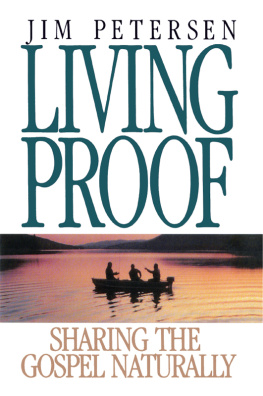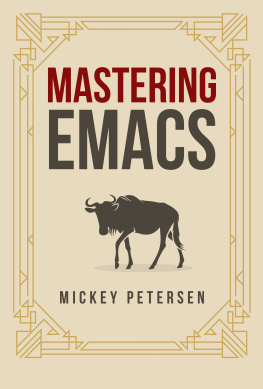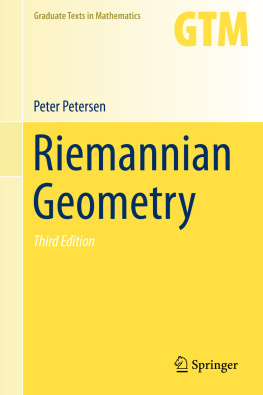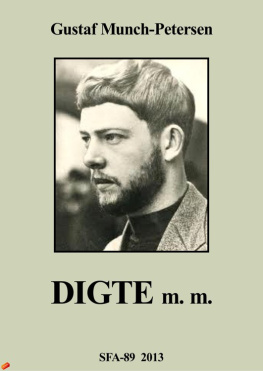David Petersen - On the Wild Edge
Here you can read online David Petersen - On the Wild Edge full text of the book (entire story) in english for free. Download pdf and epub, get meaning, cover and reviews about this ebook. publisher: Henry Holt and Co., genre: Detective and thriller. Description of the work, (preface) as well as reviews are available. Best literature library LitArk.com created for fans of good reading and offers a wide selection of genres:
Romance novel
Science fiction
Adventure
Detective
Science
History
Home and family
Prose
Art
Politics
Computer
Non-fiction
Religion
Business
Children
Humor
Choose a favorite category and find really read worthwhile books. Enjoy immersion in the world of imagination, feel the emotions of the characters or learn something new for yourself, make an fascinating discovery.

- Book:On the Wild Edge
- Author:
- Publisher:Henry Holt and Co.
- Genre:
- Rating:4 / 5
- Favourites:Add to favourites
- Your mark:
- 80
- 1
- 2
- 3
- 4
- 5
On the Wild Edge: summary, description and annotation
We offer to read an annotation, description, summary or preface (depends on what the author of the book "On the Wild Edge" wrote himself). If you haven't found the necessary information about the book — write in the comments, we will try to find it.
On the Wild Edge — read online for free the complete book (whole text) full work
Below is the text of the book, divided by pages. System saving the place of the last page read, allows you to conveniently read the book "On the Wild Edge" online for free, without having to search again every time where you left off. Put a bookmark, and you can go to the page where you finished reading at any time.
Font size:
Interval:
Bookmark:
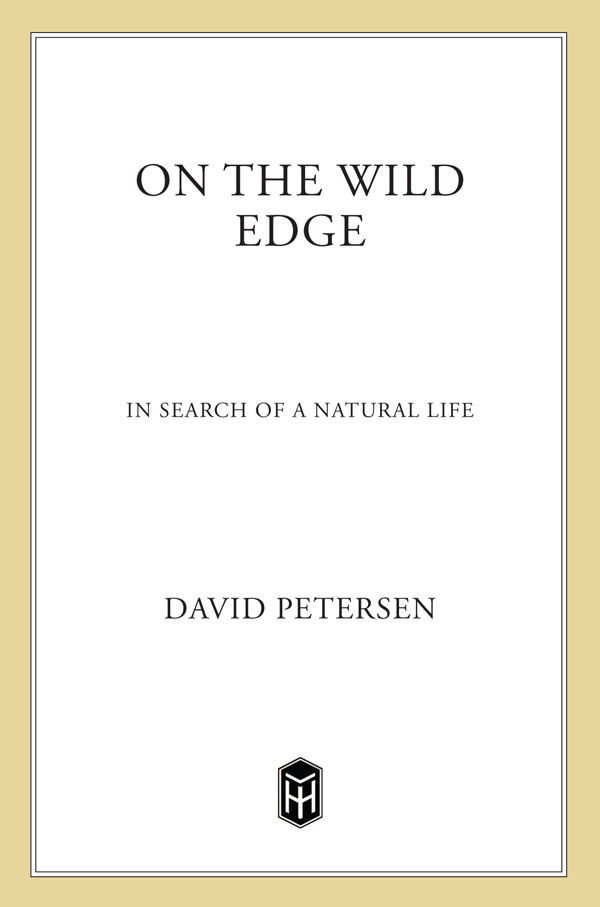

The author and publisher have provided this e-book to you for your personal use only. You may not make this e-book publicly available in any way. Copyright infringement is against the law. If you believe the copy of this e-book you are reading infringes on the authors copyright, please notify the publisher at: us.macmillanusa.com/piracy.
for Jack Macrae
But perhaps we may make our stand along the edge like a person who, having lived among another tribe, can no longer wholly return to his own. He lingers half within and half outside of his community, open as well, then, to the shifting voices and flapping forms that crawl and hover beyond the mirrored walls of the city.
DAVID ABRAM ,
The Spell of the Sensuous
A M EMORY IN N ATURE
David Petersen is a careful man in the forest. He moves unobtrusively and lusts to be alone. There is a tract of mountain land near his home that he knows as intimately as anyone has ever known family, lover, or their own true self. When he moves through this place, he does not put his scent on bark or branches or make any noise. He goes in and out of places with care and respect, leaving the area utterly undisturbed. He is familiar with every path taken in the forest by elk and deer. At all times he understands everything around himodors, casual noises, birdcalls, impending weather. When a dead twig snaps somewhere, he knows what stepped on it, how much the creature weighs, and what its intentions likely are.
A true hunter, Petersen rarely kills, and then only for the meat. But he spends countless days observing the natural scene around him. He calls himself a neo-animist and speaks to trees, rocks, the colorful aspen leaves of September. Bears have walked right by him unawares while he was sitting motionless in the woods. Elk have approached so close he could have reached out and touched their muzzles or antlers, but chose not to out of respect for the animals and himself.
As he grows older, Dave Petersen feels less affinity for civilization and more at one with the natural world. His compassion for wild territory is close to unique and, in this chaotic age of global development, that compassion is priceless. The fact that he can write so intimately and convincingly about wild country and animals makes him one of our more interesting literary figures as well as a valuable environmentalist. His observations are scientific, lyrical, from the heart. His clear, direct, and often humorous prose is imbued with much knowledge, many marvels, and occasional outrage. His writing is also rich with mystery and soul.
Over the years, Petersens body of work, steeped in a personal natural history and conservation ethic, has helped explain the American West. As we have listened in the past to our Thoreaus, Rachel Carsons, and Aldo Leopolds, we must listen now to the David Petersens among us. His work transcends science and even literature: it is polemic for survival.
* * *
On the day last October that we hiked together to one of his cherished spots, Dave showed me several marker trees, his term for landmarks. In another spot he pointed out bear-claw scars on aspen bark and recognized an immature nuthatch from its call alone. Each step of the way had a personal history and a story. A flake of gray paper among the leaves was all that remained of a wasps nest hed been watching decay for months. He remembered a spotted mule deer fawn that had bolted from right here many years ago, ravens once feeding on a winter-killed doe carcass over there, a drumming blue grouse in a particular tree. His history in this place is rich with changing seasons and breathtaking moments of wildlife encounters. Its a territory made vivid in Daves prose by his awareness of how the place counts in the macroscopic universe, from the tallest tree to the smallest bug. More than twenty years of intense observation mean that he now notices all the subtle changes. When a tree falls, the hole in the sky it leaves behind is to him a visible ghost.
Sacred and holy are words so overused by charlatans that I find them empty. Instead, for Dave, lets just say the natural landscape is home.
* * *
In the past fifteen years, David has written eight books (and edited four more), all of which focus to one degree or another on his home landscape. Together, these works constitute a fine collection of intensely personal nature writing and objective scientific observation. There are many philosophical details. The prose is as lyrical as anything written by Edward Abbey, Jim Harrison, or Thomas McGuane and is often better informed. What distinguishes his writing is a lack of pretense and a refreshing dearth of intellectual egotism. David Petersen the writer speaks clearly, to the point, with an abiding love not only for the natural world but for the written word.
Even so, Dave claims he could live without writing in his life, but never without the things I write about. I wonder if this is true. Technically, his observations on paper are as harmoniously put together as the worlds they describe. Obviously, the man has spent as much time perfecting his craft and sullen art as he has treading the forest paths near his home. The ecstasy engendered by his out-of-doors experience is captured by every phrase he conjures in his articles and books.
And the author is a man on a mission, angry about the collapsing ecosystem and the economics of development destroying the world around us. Each book can make you think of Walden, Desert Solitaire, Joseph Wood Krutch, or John C. Van Dyke. Petersen is quick to point out that his primary mentors were A. B. Guthrie Jr., Edward Abbey, and Paul Shepard (the father of human ecology). Fair enough. But today, his own work has achieved the strength, maturity, and moral clarity that make it mentor to others.
* * *
David Petersen is six feet tall, slim as a marathon runner, and, now in his fifties, as fit as the wild beasts he so admires. He has been with his lovely wife, Caroline, for twenty-five yearsthey share everything. They live in a snug little cabin surrounded by aspens and evergreen trees. Dave built it himself over several years. Theres a tiny barnlike office out behind the cabin with a National Park Service sign on the door proclaiming, BEAR COUNTRY: AVOID CONFRONTATION . Nearby is a thirty-foot-long woodpile of ponderosa, oak, and aspen logs. Two handsome dogs, an arthritic black Lab, Otis, and a giant aged shepherd-Akita mix, Angel, complement the family. Chipmunks and juncos frequent a feeder by the side door, and a box freezer in a storage shed is full of elk meat and New Mexico green chilies, all hand-wrapped in trim white packages. In the cabin, there are a couple of tattered but comfortable easy chairs in the living room, a woodstove, antlers and paintings on the wood-plank walls. Everything is tight, shipshape, clean, and easy.
Same deal in Daves half-pint office, which has a few pictures on the walls, a desk made of plywood, a couple of bookcases, a little heater. Dave keeps it simple and unobtrusive, and he keeps it neat. He moves through the world lightly. Its a pretty streamlined operation, he says of his life. His prose has the same qualities of organization and belief. Its clean, honest, organized, and unaffected. No bullshit.
Petersen began his journey to what he calls the edge in 1975, when, after being honorably discharged from six years in the Marines as a helicopter pilot, he took a bottom-end job as a typesetter for a motorcycle magazine published in the artist and hippie enclave of Laguna Beach, California. While manually typesetting articles (computers were not yet common), he soon developed a previously unrecognized interest in how prose is written and edited, began making suggestions to his bosses, and before he knew it, he was the managing editor. The rest of his tenure there he spent biking around America, Mexico, and Canada with Caroline (whom he had hired away from the lawyers next door to be my editorial assistant) and writing articles about their junkets on the powerful machines. That led to a job at Mother Earth News, where his first article, he recalls with a chuckle, was How to Build a Solar-Powered Composting Toilet. In 1983 he was assigned to interview Edward Abbey; the ensuing friendship lasted until Abbeys death six years later. Ed was a strong influence on Daves writing as well as his worldview.
Font size:
Interval:
Bookmark:
Similar books «On the Wild Edge»
Look at similar books to On the Wild Edge. We have selected literature similar in name and meaning in the hope of providing readers with more options to find new, interesting, not yet read works.
Discussion, reviews of the book On the Wild Edge and just readers' own opinions. Leave your comments, write what you think about the work, its meaning or the main characters. Specify what exactly you liked and what you didn't like, and why you think so.


